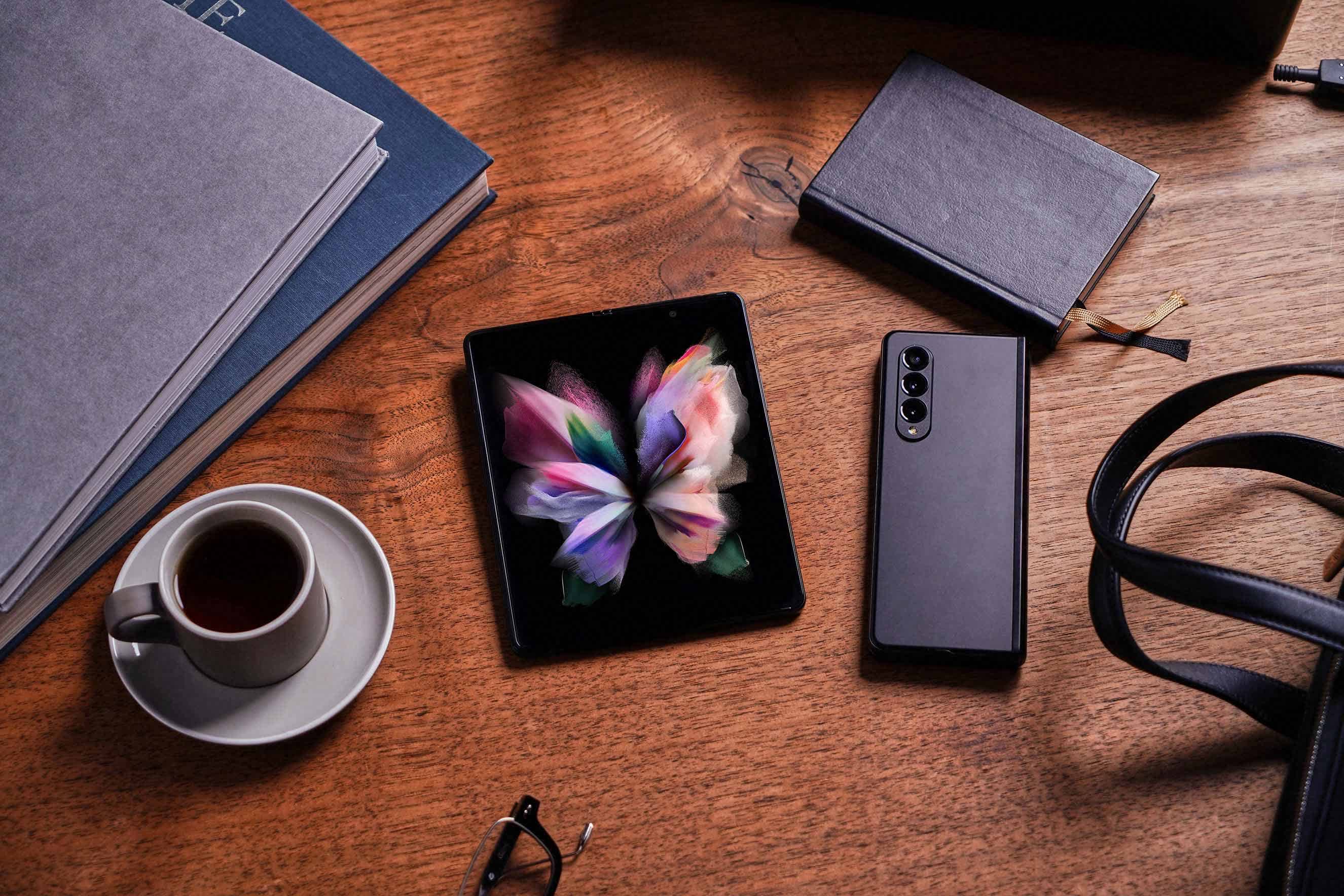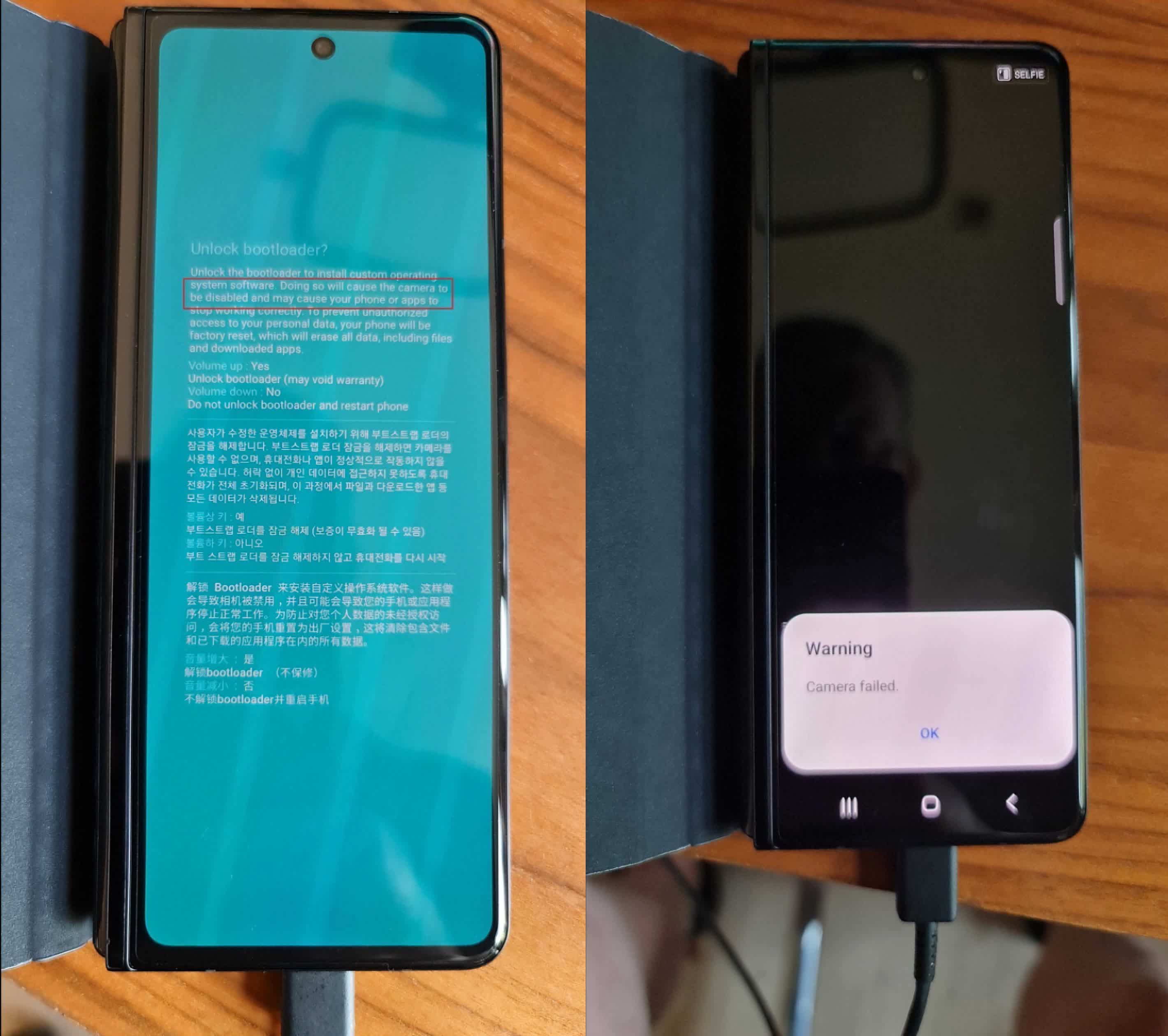In brief: People who are planning on buying a Samsung Galaxy Z Fold3 to play with custom software on it will have to make a bigger tradeoff than ever before, with the simple action of unlocking the bootloader being enough to disable all camera functionality until the process is reversed.

One of the reasons why phone enthusiasts choose to buy Android phones is that they typically get more freedom to fiddle with the software that's running on them. However, a number of early adopters of Samsung's Galaxy Z Fold3 found that unlocking the bootloader comes with some serious penalties on top of the usual risks associated with the action.
It's no secret that Samsung is not a big fan of people rooting and modding their devices, but until now the biggest consequence of doing so was that your phone would permanently lose the protection afforded by the company's Knox security solution. In turn, features like Samsung Pay and Secure Folder would be rendered unusable, but the former in particular may be an acceptable tradeoff for some.

Image credit: ianmacd | XDA Developers
However, two senior members of the XDA Forums found that when they tried to unlock the bootloader on their Galaxy Z Fold3s, they received a message warning that all five cameras would be disabled as a result. On closer inspection, the two enthusiasts found that all camera features such as facial recognition are indeed disabled, and third-party camera apps no longer work after unlocking the bootloader.
As of writing, there's no workaround for this, but re-locking the bootloader does reenable the cameras. Either way, it looks like Samsung really, really wishes that you not change anything about how its devices work, which some may find is a similar behavior to that of a certain fruity company we won't name.
https://www.techspot.com/news/90936-unlocking-bootloader-samsung-galaxy-z-fold3-kills-camera.html